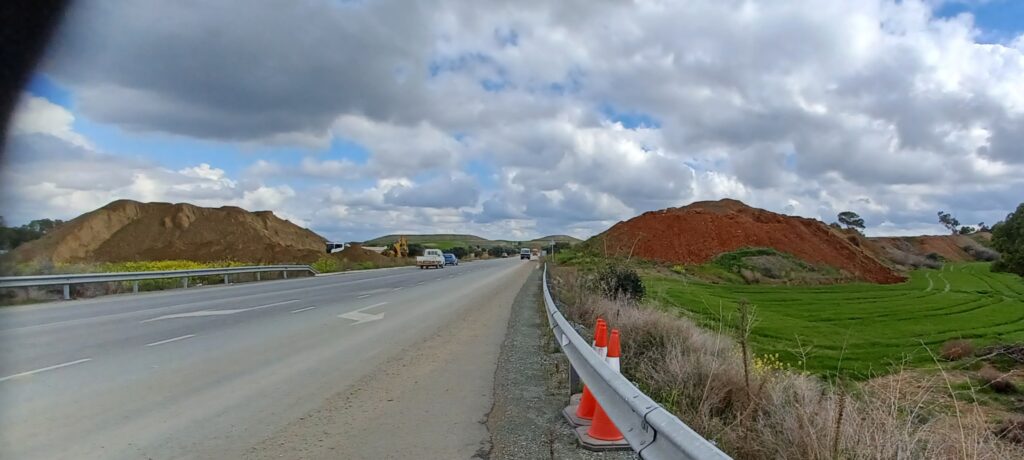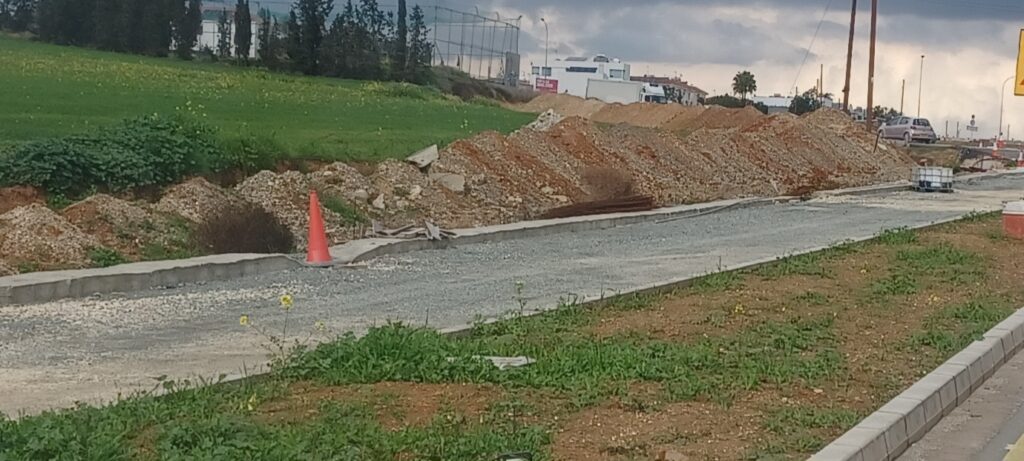Filenews 30 January 2024
Several parts of Cyprus have been converted into a waste disposal site, either with excavation soil or rubble resulting from demolitions, by contractors who either undertake to construct roads or are active in the construction sector.
Contractors engaged in the construction of intercity roads or roads of primary importance or even roads within local authorities (either in cities or communities) allegedly dispose of soil resulting from excavations in open spaces, riverbeds or near them, in looms, streams and so on, which, in some cases, It also involves the risk of being swept away by rainwater which sometimes descends rapidly, causing damage or even destruction to property of unsuspecting citizens.

Even worse is the situation with the rubble of buildings that have been demolished since the process of collecting them is much more difficult, while in some cases it is either very expensive or even cannot be collected, especially when it is dumped in ravines and generally in places where excavator access is from difficult to impossible.
However, even in cases where it is easy to collect and move soil from excavations or debris from demolitions, the environment is negatively affected and the picture presented is not the best. This also applies to cases where even temporary disposal of excavated and/or demolition products is permitted.
Speaking with people who have a general picture of what is happening, they told us that the reason why these materials are disposed of wherever it suits everyone, is mainly economic, since their opportunistic and casual disposal entails cost reduction for the contractor in the sense that he will not use trucks to transport them to licensed units. It will not pay much fuel nor the tariffs required in the processing and recycling plants.
The competent services, which are responsible for monitoring the works, in some cases show tolerance while in others, they initiate their movement procedures by putting pressure on contractors. One such case concerns the Nicosia perimeter road where the contractor did not move all the volumes of soil resulting from excavations, resulting in cuts from his fee of €40,000. The question is whether the contractor, both in this case and in others, will choose not to comply without being directly affected by the cut-offs; Given that in this project as in others, there are always claims for delays and for both parties to "step", if the State is not called upon to pay more, citing various clauses of the contract.

Another case in which the deposition of excavated products (basically soil) is eye-opening, even if they have been stacked upon request, is that of the project concerning the Ippokratous-Argyroupoleos Avenue and part of Tseriou and Strovolos Avenues in Lakatamia and Strovolos, where literally the soil deposits resemble hills. The images published by "F", which were taken only yesterday, speak for themselves and the person who sees them wonders how and when the space in which they have been deposited will be cleaned.
As we have been told, the case of this road is somewhat different from other roads, since for the first time the solution of reusing materials for the needs of the project itself was chosen. In order to reuse materials, i.e. soils, they must first be checked by the Department of Public Works and improved (with various impurities) if necessary, in order to become suitable for their intended purpose.
As we have been told, reuse was a condition of the Department of Environment, which aims to dispose of as little excavated material as possible. These soils will be used in embankments, embankments, etc. of the same project. We were also told that reuse of materials is included in the terms of the contract. In any case, if not all materials are used, the contractor will be asked to transport them to licensed disposal sites.

There are guidelines according to which the supervising engineers of the public sector monitor the progress of the works and ensure that contractors remove excavated products or any rubble and, where there is no cooperation, ensure that deductions are made from their remuneration.
